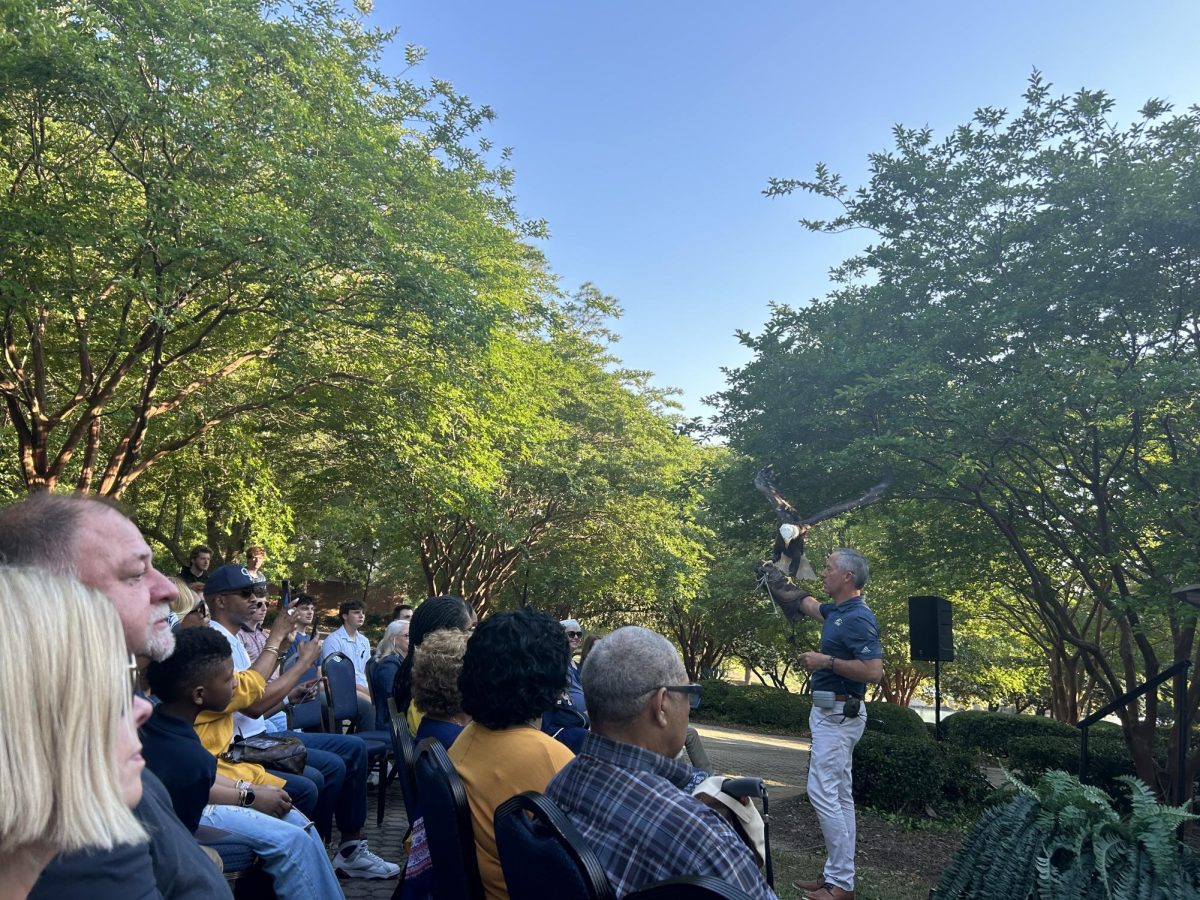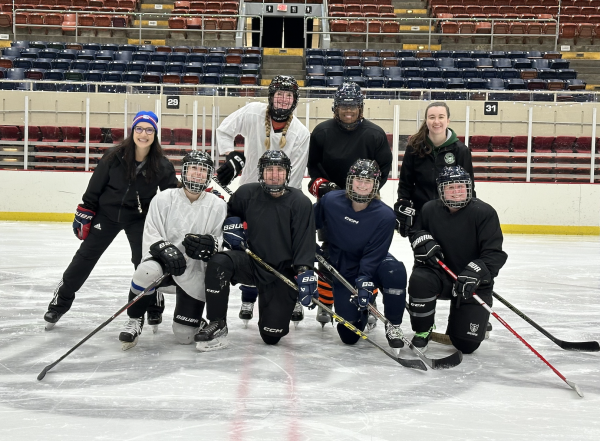A Look at the Life of a Color Guard Member
August 28, 2018
Color guard is an experience like no other. And I’m lucky enough to be able to call it mine.
Color guard certainly did not come naturally. When I first picked up the six-foot pole with 48 inches of silk attached to it at the end of my 8th grade year, I thought something along the lines of “how the heck am I supposed to spin this?” After that first clinic, I went to the car in tears. I thought it was too hard. I wanted to quit before I had even started—I had expected perfection my first try.
Luckily, my dad had been there to pick me up. I explained what had happened, and he convinced me to go to one more clinic. I reluctantly agreed, and, to this day, I’m so glad I did.
The second clinic, everything was so much easier. It was like things were clicking into place.
The second clinic convinced me to spin my first fall season, but it wasn’t what convinced me to stay. What convinced me to stay was my second half-time performance. I say my second performance because my first did not go well. I overthought and ended messing up a lot. The second time I convinced myself that I was just going to do my thing. After all, I knew what I was doing. During that performance, I got a feeling like no other. It was something unexplainable.
A mix of excitement and adrenaline blossomed in my chest. I thought wow. So this is what it feels like. This is why people do it. At that moment, I knew I belonged on the field.
And, seven years later, I’m still performing.
What is color guard?
Color guard and the majorettes are the auxiliary in the marching band. While the majorettes twirl batons, the guard spins flags, rifles and sabres.
Most people don’t understand how much work it takes. When we perform on the field, every single guard member is counting, spinning, tossing, jazz-walking, smiling all while remembering the show work and where on the field we are supposed to go.
The secret? Practice. Hours and hours of practice.
You take lots of time out of your summer. You use your whole body to spin all while the Georgia heat is beating down on you. You deal with gnats, humidity and exhaustion. Our last band camp lasted eight days and six of those days were from 9 a.m. to 10 p.m. The guard has two guard camps in the summer. We have practice Monday, Wednesday and Friday from 4 to 6 p.m., and the guard has a sectional afterwards at least one day a week. On game day, our “call time” is five hours before the game. This doesn’t even include practicing on our own.
We have a pregame show we perform before every home game as well as multiple halftime shows throughout the season.
I’m not telling you this to complain. I’m telling you this so you have a better understanding of how much work it really takes.
Why do I do it?
For one, it’s for that feeling you get when you perform that I mentioned earlier. Another thing is the people. The guard—and the marching band—is your family. With all the time you spend together on the field, they become your home away from home. They’re there for you during the good times and bad times.
Marching band also teaches you the importance of hard work and determination—traits that you will need throughout your whole life. You can’t be lazy in marching band and expect to get the job done. It doesn’t work like that.
When you perform, you aren’t just performing by yourself. You all work together towards the same goal. Everyone on that field has put in the work to create something everyone can enjoy. I think that’s really beautiful.
All these things make the blood, sweat and tears worth it.















